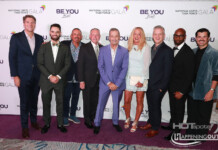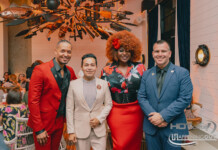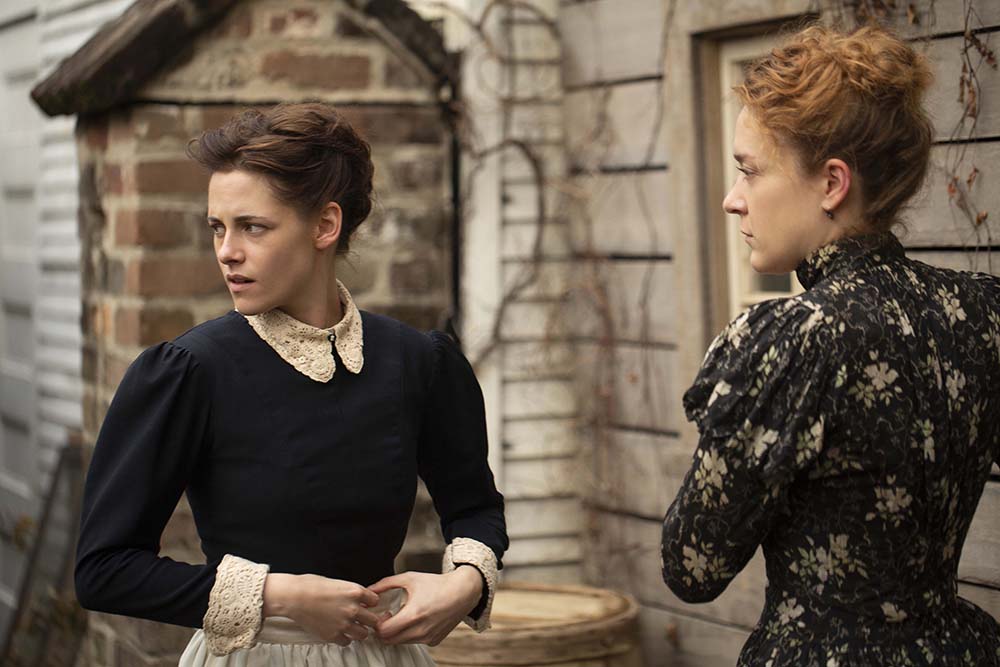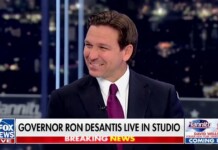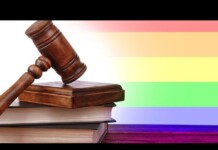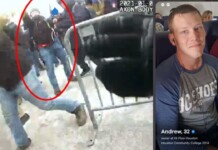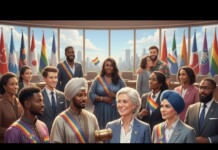Chloë Sevigny knows the power of words, so she’s very careful with them, warily tiptoeing to the end of an answer when asked about the influence of her seminal trans-landmark film Boys Don’t Cry. The 1999 dramatization of the murder of real-life Nebraskan transgender teen Brandon Teena (Hilary Swank) garnered the 43-year-old indie queen and style icon, who played Teena’s girlfriend, Lana Tisdel, an Academy Award nomination for Best Supporting Actress.
Director Larry Clark’s 1995 film Kids came first, with Sevigny portraying an HIV-positive teen. But Sevigny would go on to amass a body of LGBTQ films and roles, including If These Walls Could Talk 2, Party Monster, Will & Grace and Broken Flowers, playing Jessica Lange’s lesbian assistant. In 2012, she portrayed trans contract killer Mia in the British miniseries Hit & Miss, a part she now says she’d pass on if it were offered to her today. (Actress Scarlett Johansson recently withdrew from playing a trans character in the forthcoming Rug & Tug after facing LGBTQ backlash.)
Currently, Sevigny stars in and co-produces Lizzie, featuring the actress’ first lead role in her 50-film career. The thriller explores infamous 19th-century alleged murderous Lizzie Borden through a queer lens, which, according to this version, goes like this: Lizzie (Sevigny), to rebuke the patriarch who’s getting in the way of her romantic pursuit of maid Bridget Sullivan (Kristen Stewart), slaughters her father and stepmother with an ax. And so, Sevigny can now add “real-life killer lesbian” to her abundantly gay resume.
What has led you to so many LGBTQ characters?
The marginalized, the misunderstood, the outcast – you know, I grew up super sensitive as a child, and my brother and I were pretty rebellious in a small town and were really into just questioning the status quo. I have a lot of older peers who are gay and knowing the struggle and what they fought through, and having so much respect and admiration for the times that they’ve lived through – not that the struggle is over by any means, but just the perspective that I think gets lost. Post Trump, with all the conversations that are being had, and everyone’s like “oh god, it’s so horrible; I can’t watch the news,” but thank god everyone is talking about how political the systems are. I really feel like change is happening.
Why do you think you didn’t experience the same backlash that Scarlett Johansson did for signing on to play a trans role?
It was just a different time then. When they came to me with that role I said, “I don’t understand why you don’t cast a real trans person,” and they said, “We can’t get the funding because we can’t find anyone that has a big enough name, in all honesty.” And I just felt like it was an important story to tell, and I loved the writing and I loved the creators and I wanted to be a part of it. If that opportunity came to me today, I would pass, for sure, 100 percent. It was just, unfortunately, what was acceptable then. I think it wasn’t as challenged, and it should be.
What are your thoughts on whether LGBTQ actors should exclusively be playing LGBTQ roles? And with that in mind, how did you approach Lizzie’s sexuality?
Well, I want to respect (the community) and their stories and who they are as people, and I feel like (Lizzie and Bridget’s) love was born out of the confines of the environment they were in at the time; they were looking for escape in one another. I feel like it’s kind of beyond the boundaries of queer, straight, you know?
We had a good writer, we had lots of out cast members who really respected the story and wanted to be a part of telling it, and I admire them all for being out and for coming forward and supporting the project. I mean, I feel if gay men or women can play straight, I don’t know (laughs) if it’s fair to do the reverse. But I just hope that there’s more opportunities, for everyone – especially the people who are marginalized.
Did it mean something to you to have someone who is not heterosexual, Kristen Stewart, play Bridget, who is also not heterosexual?
It… did. But she was also my first choice just as an actor, not the person. I have so much respect for her choices, and I could go on and on about her performances, but I like her persona. For me, I’ve always been attracted to directors or other actors that I feel like have more than just that going on – that aren’t just, like, theater nerds (laughs). Not that there’s anything wrong with theater nerds! But I feel like she really represents something to a lot of generations, with Twilight and beyond.
You’ve said what you had in mind for this film didn’t align with director Craig William Macneill’s finished feature. How about Lizzie and Bridget’s sexuality – was that explored as deeply as you had hoped?
I think when I said that I was more talking about the process because we had been through so many different incarnations of the script. Things were changing even until the last moment. It’s the power of the edit, things you have to let go of. There was more between our relationship, kind of questioning it, and deciding she doesn’t want to go any further and then coming back. And probably in the overall course of watching the movie it would’ve muddled things, so you kind of have to accept in the edits how things work and how some things don’t, and that’s just the process of filming.
There’s an intimate scene where Bridget and Lizzie almost kiss, but trepidation holds them back. How were you reading Lizzie in that moment?
She was starved for recognition; she just wanted to be seen as she was and she felt really that she didn’t have a voice, and I think she wasn’t valued by her family or her community and she found somebody who valued her and could hear her and who wanted to listen to her and talk to her. There was so much physical attraction between them, but also just what that person was for her. She was on a quest for freedom, and she goes to the most extreme thing you can do and in the end kind of loses it all.
As someone who’s known for her queer roles, when you get stopped by an LGBTQ person on the street, which film do they tend to most recognize you from?
Boys Don’t Cry, for sure. They say every actor has one thing that they get recognized or known for, and for me it’s Kids, but from the gay community it’s probably Boys Don’t Cry. I think there are just a lot of reference for that movie and it meant a lot to a lot of people.
Next year marks 20 years since Boys Don’t Cry. How do you reflect on the effect that movie had?
Just like… I just think at that time when it came out there just wasn’t a lot of representation of that community, on screen or on television or anywhere – oh my god. So sensitive around this subject. (Laughs) I’m always like, I’m gonna get take down for anything I say – it’s just a hotbed. It feels like it’s almost hard to talk about this without feeling under the gun, for some reason. Because it’s like, you can’t say the right thing.
But I feel like it was important to the world. Not even one community in general. As far as building tolerance and acceptance and educating people and portraying a person and seeing the violence acted out against them and how heart-wrenching it is and humanizing a story, it was a really important thing to be a part of. I had read all the articles about Brandon Teena and was already obsessed with the story before being offered the audition and I wanted to be a part of telling that story.




